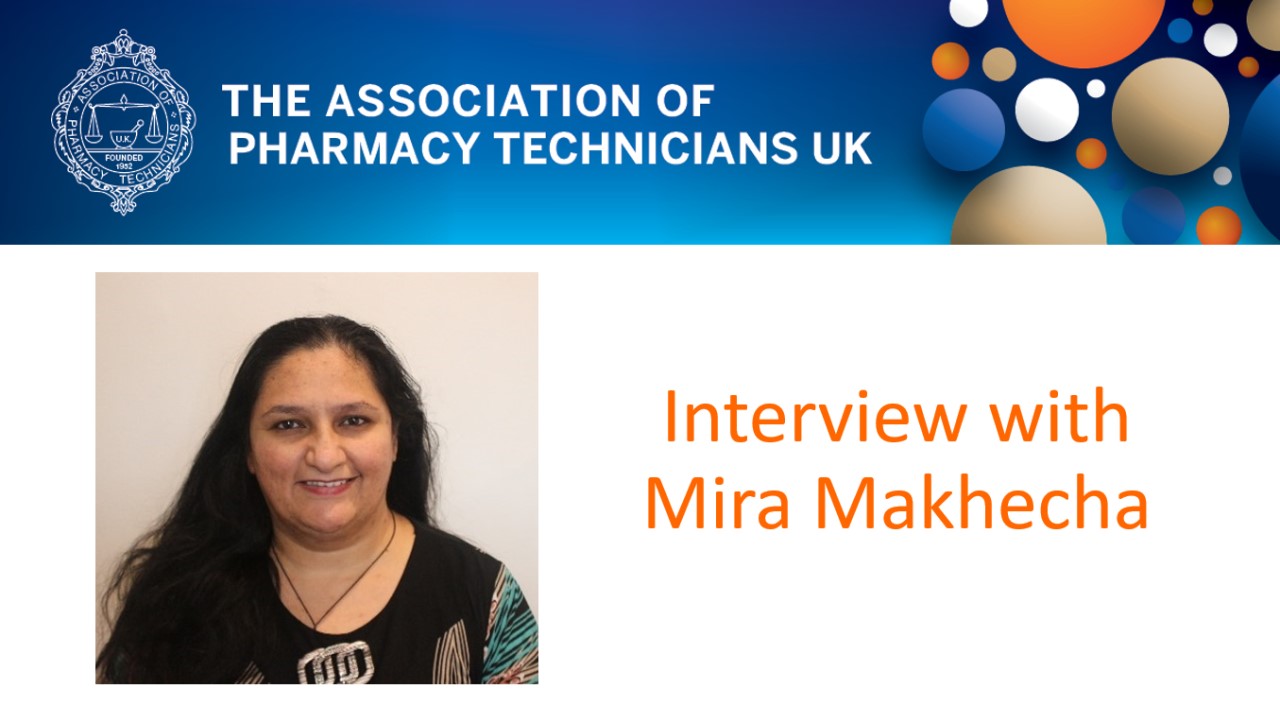In Member News
Mira Makhecha is a Senior Pharmacy Technician. She works in a Primary Care Network (PCN) in Surrey and is also an education supervisor at the Centre for Pharmacy Postgraduate Education (CPPE).
In this article Mira reflects on her work with patients who require blood pressure checks and how pharmacy technicians can develop their knowledge of CVD.
What does your role involve in the PCN and what do you most enjoy about it?
Part of my role involves running a weekly DOAC (direct oral anticoagulant) clinic for a GP surgery, helping to identify patients who would benefit from a review and blood pressure monitoring. This is in addition to checking the patient’s compliance on their blood pressure medication, identifying patients who may have high blood pressure, contacting them, and educating them on how to take a reading at home. If the reading is high, then I would ask them to keep a five-day diary measuring blood pressure twice a day. Based on results recorded in this diary, I then refer them to GP or clinical prescribing pharmacist for further review which could be 24-hour blood pressure monitoring or titrating of blood pressure medication. I also give them healthy lifestyle advice and signpost to support such as stop smoking services and lifestyle adaptations that they can make to benefit their health.
I am a people person. I really enjoy contacting my patients and engaging with them. Understanding that I have made a difference to them makes my day.
Why is Inclusive Pharmacy Practice important?
Inclusive Pharmacy Practice is about patient-centred care.
One of the key things about being inclusive is ensuring people are aware of the healthcare services available. A lot of people may not be aware. I’ve taken the opportunity to talk about our services in public settings such as the supermarket, library and school playground. It’s important to understand that engagement might be a challenge. Persevere! If one way is not successful, it is important to reflect and try a different approach. This evolutionary mindset is the foundation of developing our healthcare service and empowering patients to take ownership of their health and work in partnership with healthcare professionals.
Make sure you use simple language when talking with patients, not jargon. English is not the first language for many communities. Recognising communication, empathy and resilience in practice allows for not only a patient centred approach, but patient specific care.
What is your advice to pharmacy technicians working in CVD?
CVD is the leading cause of death globally. Early detection can save a life. Wherever you are with your experience and confidence, you can play an important part. You may not be an expert on CVD and blood pressure medication, but one can enhance their learning by collaborating with colleagues. For example, you could shadow a colleague to find out more about what they do - whether they are a pharmacy professional, GP or nurse. This will help you understand how and where you can contribute. Never be afraid to ask questions and learn.
The pharmacy world is evolving, and pharmacy technicians are enhancing their skills exponentially. Communication is key so tell your team about what you can do as a pharmacy technician so that healthcare can be optimised to deliver a high standard of care.

